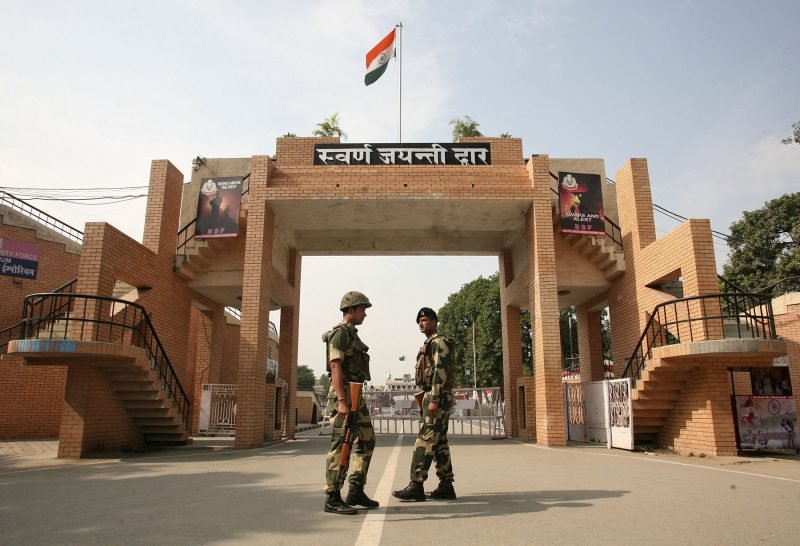Is Hindu Nationalism responsible for the backtracking of India-Pakistan relationship?

Introduction
Scholars and commentators have held Hindutva and Hindu Nationalism responsible for the backtracking of India’s relationship with its near and extended neighbours. A few months back, communal comments by an Indian citizen in UAE led to a backlash from the Princess Hend al-Qassimi of the UAE. Her comments followed statements coming from the Organisation of Islamic Cooperation (OIC), which expressed its concern over the Citizenship Amendment Act 2019 and urged India to take urgent steps to protect the rights of the Muslim minority. To an extent, this seems plausible. But to blame Hindutva for the worsening India- Pakistan relationship is mere exaggeration.
Those making this claim carry doubly false assumptions in their mind. First, by blaming Hindu Nationalism for the current state of relations, they implicitly argue that the India-Pakistan relationship was thriving before the Bharatiya Janata Party (BJP) came to power in 2014. Second, by a mere extension of their argument, they tacitly suggest that the absence of BJP and the Hindu Nationalism will improve the relationship. I argue that both the assumptions are completely unwarranted. First, if history is any guide, the lows of India- Pakistan relationship can be traced back to independence. Secondly, relationships won’t improve until the most fundamental deadlock of Kashmir is resolved.
Past and the present
First, India- Pakistan relationship since independence has never been in a hunky-dory state. They went to war in the same year they attained independence and still stand head to head on the Kashmir issue.
The origins of the Hindu Nationalism can be traced back to the second half of the 1980s. As Ramchandra Guha points out in his book, there were mainly two reasons for the resurgence of Hindu Nationalism: Telecast of Ramayana on Doordarshan in 1987 and BJP building its political career on Hindu sentiments. In the period before that, the two states had already faced each other in three full-fledged wars. Thus, putting all the blame on Hindu Nationalism even for historical reasons is not justified.
As Former Foreign Secretary Shyam Saran points out in his book, if ever, the two nations came closest to resolving the border issue, was during the Bajpai administration- a BJP led National Democratic Alliance (NDA) government

Secondly, contrary to his campaign rhetoric Narendra Modi started his Pakistan policy on a very warm note. PM Modi invited Pakistani Prime Minister, Nawaz Sharif, along with the other leaders of the SAARC nations for his swearing-in ceremony in 2014. Before the Cricket World Cup in 2015, Modi reached out to his Pakistani counterpart and wished him luck. What followed “cricket diplomacy” was “wedding diplomacy,” when in the same year Narendra Modi stopped off in Lahore to celebrate Sharif’s birthday and attend the wedding ceremony of his grand-daughter on 25 December. These personal overtures were accompanied by the talks on Foreign Secretary and Foreign Minister level. As Kanti Bajpai points out, India-Pakistan relationship during the initial part of Modi administration was a pendulum traversing between cooperation and defection. No doubt, defections came from Pakistani side and were serious enough (Pathankot and the Uri attack) to undermine any efforts that were moving the bilateral relationship at an upward trajectory.
Why has the Kashmir problem lingered for so many decades? The first and most important reason is that neither India nor Pakistan is thoughtful of the sentiments and aspirations of the people living on both sides of Kashmir. The piece of land has been used at various times by numerous administrations across the countries to bolster their domestic position. If however, “traditional security” defined in terms of protecting the borders and preserving sovereignty had been defined in terms of human security, Kashmir would have been resolved long back.
The second problem lies in the way Pakistan conceives its identity. As Hussain Haqqani points out in his book, Pakistan was formed on the pretensions that the Muslims rights won’t be secured in a Hindu dominant India. Even after seven decades of sovereign existence and two decades after it first occupied nuclear weapons, Pakistan continues to thrive on hostility towards India and fear of Hindu domination. Pakistan has failed to reimagine itself for all this time, and that explains the title of Haqqani’s book “Reimagining Pakistan.” This accompanies a very high amount of status and prestige attached to Kashmir in the notebooks of both India and Pakistan, which disallows the political leadership to sell any plausible compromise to its domestic public.

The way ahead
Ashok Dhar in his book Kashmir as I see it discusses many solutions to the Kashmir debacle. The one which according to his dove and hawk framework seems most feasible and workable is the middle ground approach. The approach after the revocation of Article 370 looks slightly altered to what he suggested. According to the modified version of the approach both Pakistan and India will retain the territory currently under their sovereign control, Ladakh to remain as Union territory, Jammu to be made a state and Kashmir to be given greater autonomy.
This to my wisdom seems a very reasonable and sensible solution to solve the deadlock in Kashmir because of the following reasons:
First, despite the rhetoric about recapturing the POK, it seems highly unlikely that India will ever do that. Pakistan is a nuclear-armed nation and any encroachment upon its territory could be seen as a threat to its sovereign existence. Pakistan being relatively weaker in terms of military capabilities could resort to using tactical nuclear weapons. Also, the possibility of a full-fledged nuclear war can’t be completely nullified.
Second, India going after Pakistan would bring China in support of Pakistan, given the all-weather China-Pakistan axis. This might unravel the biggest nightmare of Indian security strategists- a two-front war. This is the last thing the Indian security establishments will look up to.
Third, it would be in the interest of all the three parties involved: India, Pakistan and the natives of the region. Already both the countries have spent billions of dollars on Kashmir and the human cost involved is incalculable.
Fourth, India harbours the aspiration of becoming a great power. But with an unresolved border dispute on its turf that causes frequent diplomatic embarrassment and consumes enormous human and financial resources, India’s great power quest will be likely affected. Thus, a speedy and effective resolution of the Kashmir dispute will liberate India of high financial and military cost.


















